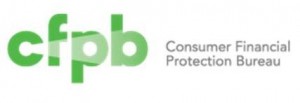Federal three-judge panel rules CFPB’s structure is unconstitutional but rejects idea of shutting down agency
A federal appeals court delivered a strong rebuke to the government’s new consumer-finance watchdog, declaring the agency’s unusual independence to be unconstitutional, and ordering its powers be curbed.
The Tuesday ruling was the latest legal setback to the Obama administration’s post-crisis financial-regulatory regime.
The panel’s decision limited the broad discretion granted the five-year-old Consumer Financial Protection Bureau in the name of tilting the balance of power from industry to small borrowers, calling it a “gross departure” from the checks and balances normally imposed on regulatory agencies.
The judges also harshly criticized the enforcement action that led to the court ruling. It ordered the agency to reconsider the penalties that the CFPB had imposed on a mortgage lender for allegedly overcharging consumers.
If it stands, the decision from the U.S. Court of Appeals for the District of Columbia would reduce the agency’s independence, empowering the White House to supervise the agency and remove its director, in contrast to the current arrangement where the director’s five-year term is intended to outlast a president’s.
The broad rhetoric of the majority opinion is also inflaming the fractious political debate over the CFPB and the sweeping 2010 Dodd-Frank law that created it, emboldening Republican critics who have long pushed legislation that would go further in limiting the agency’s authority.
But the ruling will likely be appealed by the Obama administration and Democrats who see the CFPB as a core part of their legacy, and defend its powers as necessary to correct what they considered systemic problems that gave the financial industry too much power before the crisis. They invoke the agency’s recent fine against Wells Fargo WFC -0.44 % & Co. in a scandal over its sales tactics to justify their case.
“This is a good day for democracy, economic freedom, due process and the Constitution,” Texas Republican Rep. Jeb Hensarling, the top financial lawmaker in the House, who is spearheading the drive to curb the agency’s powers, said in response to the ruling.
Massachusetts Democratic Sen. Elizabeth Warren, the principal architect of the agency, said the ruling “will likely be appealed and overturned.” She also played down its significance, saying it would only require “a small technical tweak” to the agency’s structure.
This was the second time this year that a federal judge has dealt a setback to the Obama administration’s aggressive implementation of Dodd-Frank. In February, a judge nullified as overreach an attempt by regulators to impose stringent bank-like regulation on MetLife Inc. MET -0.57 % because officials had declared the insurer presented a systemic risk to global markets.
In Tuesday’s ruling by a three-judge panel of the U.S. Court of Appeals for the District of Columbia Circuit, Judge Brett Kavanaugh, a George W. Bush appointee, wrote that Congress gave the CFPB director “more unilateral authority than any other officer in any of the three branches of the U.S. government, other than the president.” He said the problem of checks and balances was particularly acute because the CFPB “possesses enormous power over American business, American consumers and the overall U.S. economy.”
The appeals court allowed the CFPB to continue operating as an agency but ordered a restructuring of how it operates in the executive branch.
“The bureau is considering options for seeking further review of the court’s decision,” a CFPB spokeswoman said, adding the ruling “will not dampen our efforts or affect our focus on the mission of the agency.”
At issue was a case the CFPB initiated in 2014 against PHH, a New Jersey-based mortgage lender. Eventually the bureau ordered the company to shed $109 million for allegedly accepting kickbacks from mortgage insurers.
The case first went to an administrative judge who found PHH violated the law but ordered a relatively small sanction: $6.4 million. CFPB Director Richard Cordray took a much stiffer view of the law and of the extent of PHH’s alleged violations, imposing the considerably larger penalty of $109 million.
Mr. Cordray’s interpretation of the real-estate law differed substantially from that of the Department of Housing and Urban Development, which administered the law before the CFPB came into existence.
The appeals-court ruling Tuesday said Mr. Cordray’s interpretation was incorrect. And it said the CFPB “violated bedrock due process principles” by applying its new interpretation retroactively.
Another key issue raised in the PHH case was the question of whether a statute of limitations applied to the CFPB’s enforcement effort. The CFPB has taken the position that Congress didn’t set a time limit for bringing administrative proceedings. The court, however, said a three-year limit applies to enforcement of the alleged kickback violations, a holding that prevents the CFPB from attempting to punish alleged conduct that took place before then.
“The statute of limitations issue will significantly undermine the bureau’s practice which is to look back and seek restitution for many years, often before the bureau even existed,” said Andrew Sandler of Buckley Sandler LLP. He added that the court’s ruling against the CFPB on retroactive enforcement of new legal interpretations will “significantly limit its ability to seek damages for past periods of time in certain circumstances.”
An array of banking and business groups filed amicus briefs supporting PHH in the case, including the American Financial Services Association, the U.S. Chamber of Commerce and the National Association of Home Builders.
The D.C. Circuit panel was unanimous in faulting how the CFPB brought an enforcement action against PHH.
Judge Karen Henderson dissented on the constitutional holding, saying the court didn’t need to address that question to resolve the case. All three judges were appointed by Republican presidents.
Source: Wall Street Journal












Facebook Comments